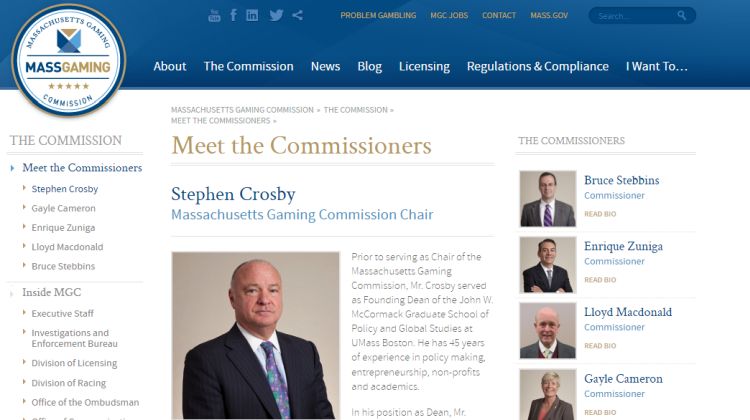Editor’s note 3/08/2017: This article has been updated to convey a message from Wynn Resorts’ Senior Vice President of Marketing and Communications, Michael Weaver, that contrary to what MGC Chairman Stephen Crosby is quoted as having said in a WAMC News broadcast, Wynn Resorts remains opposed to online gambling. Wynn Resorts’ position on the matter includes the belief that online gambling operators cannot effectively identify and authenticate end-users, “creating a risk of underage gambling and abuse.”
While the push for online lottery sales in Massachusetts suffered a setback last August when a provision to approve the games was dropped from economic development legislation a few days before online fantasy sports were approved in the state, Massachusetts State Treasurer Deborah Goldberg and Lottery Executive Director Michael Sweeney didn’t give up the fight.
Now, according to a broadcast on WAMC northeast public Radio, Massachusetts Gaming Commission Chairman Stephen Crosby says that by the middle of the year there might be something for the legislature to look at allowing some form of online gambling to go forward along with plans to regulate it. A legislative committee is said to be looking into the possibility.
According to the report, additional comments by Chairman Crosby included a statement that the state’s three licensed casino operators do not object to making online gambling legal in the state. This perception has since been refuted by Wynn Resorts.
MGM Springfield and Wynn Boston Harbor hold two of the licenses for their under-construction casinos, while Penn National Gaming operates the state’s only slots parlor located in Plainville, opened in June 2015. A study presented by the MGC in January showed that the opening of Plainridge Park Casino had not reduced lottery sales statewide nor in the area of the casino.
An additional slot parlor casino was rejected by voters in November, and the Mashpee Wampanoag Tribe’s Project First Light Resort & Casino in Taunton is mired in lawsuits over their right to build and operate the $1 billion project which they broke ground on in August 2016. An application for the third potential commercial license was rejected by the Gaming Commission nearly a year ago. That casino would have competed directly with the nearby tribal casino.
It’s currently unclear if the eventual legislation authorizing online lottery games would be restricted to ticket sales and instant win virtual scratch cards, or if virtual video lottery terminal slot-like games would be allowed.
State Treasurer Deborah Goldberg contends that online, especially mobile sales are crucial to attract and retain younger customers. The lottery made $989.4 million in profit for FY2016 with profit projections falling for fiscal years 2017 and 2018.
A proposal put forward by Sen. Jennifer Flanagan in January would leave what kind of games that would be available up to the lottery commission.
Director Sweeney also has stated several times that he believes the state lottery must move online to thrive.
The state’s bingo industry, a natural for online play and also overseen by the Lottery Commission, has spiraled from a high of 916 organizations offering the game in the 1980’s to less than 130 as of last month according to an article in the Patriot Ledger quoting Sweeney.



